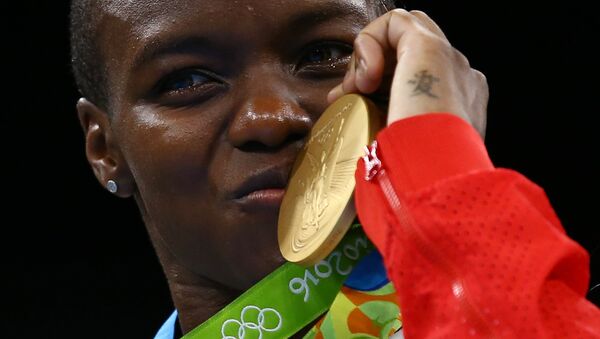The organizers hope that the move will promote sustainability, save money, and help contribute to the public's involvement in the games. To this end, they are partnering with NTT DoCoMo, Japan's largest mobile phone operator, and the Japanese Environmental Sanitation Center, a government organization. The three organizations will place collection boxes throughout DoCoMo offices and stores, starting in April.
"This project highlights Tokyo 2020's commitments to engage the whole Japanese nation and to offer to everyone the opportunity to play a role in the Games' preparations," said the organizers. "It also responds directly to Recommendation 4 of Olympic Agenda 2020 that states sustainability be integrated into all aspects of the planning and execution of the Games."
"There's quite a limit on the resources of our earth, and so recycling these things and giving them a new use will make us all think about the environment," Tokyo 2020 Sports Director Koji Murofushi said in a statement.
"It will become quite a big memory for children, who think that something they gave may have been part of creating those medals," said Murofushi, a former Olympian who won the 2004 gold medal in hammer throwing.
Some 5,000 medals will be issued to athletes during the 2020 Olympics and Paralympics. To mint the medals, the committee will need to gather about 3,000 kg apiece of both silver and bronze, plus an additional 40 kg of gold, from appliances and cell phones. Olympic gold medals are typically 95-99 percent silver, with the remainder being a thin outer layer of gold.
Consumer electronics typically contain trace amounts of valuable metals. For instance, smartphone wiring uses a tiny amount of gold (.03 grams in an Iphone) because the metal is an excellent electrical conductor. Other valuable metals, such as silver, platinum, palladium, and lithium are also found in trace amounts.
"In this age of materials, it is a great initiative to make Olympic and Paralympic medals, the symbol of hard work for athletes, out of metal collected from urban mines," said retired Olympic swimmer Takeshi Matsuda, who won one silver and three bronze medals.
"It is a significant gesture that a host country can make, to encourage its people to proactively engage in the Games' preparations, while caring for the environment."
This is another offbeat decision from an Olympics that has announced anime heroes including Goku and Monkey D. Luffy as official ambassadors, and has intentions to incorporate robot concierges, translation necklaces, and a man-made meteor shower as part of the festivities.




